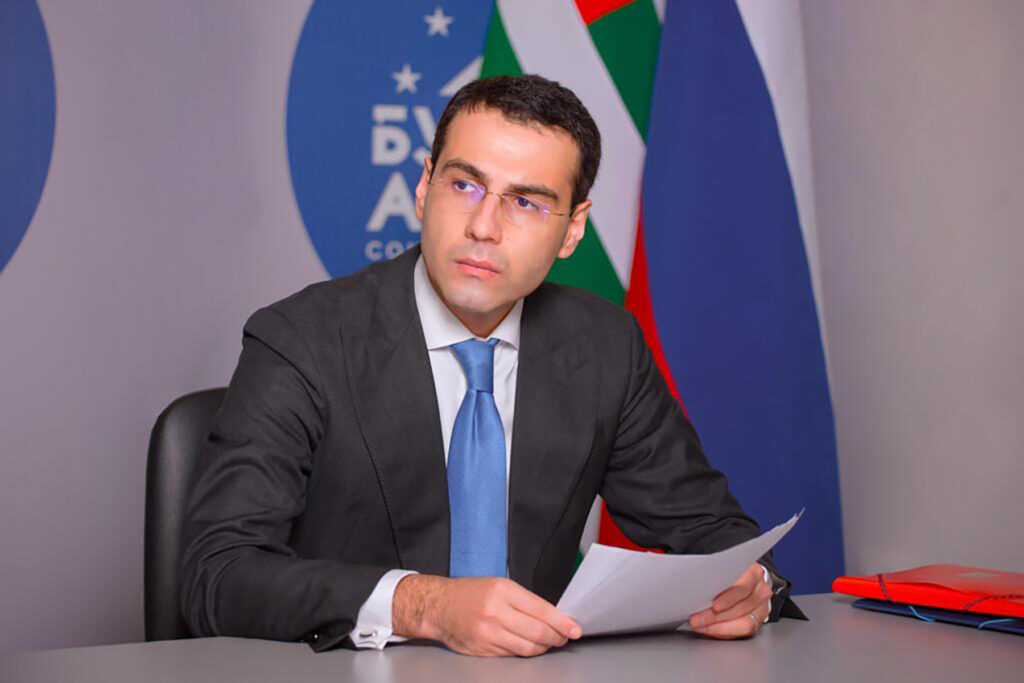Abkhazia’s Foreign Ministry has introduced sweeping new restrictions on foreign aid, including banning USAID funding, funding of media, as well as projects aiming to establish contacts across the line of conflict.
Thursday’s announcement was attributed in part to a US Agency for International Development (USAID) document reportedly describing Abkhazia as ‘the occupied territory of Georgia’ and declaring its aim to ‘restore Georgia’s territorial integrity’.
The same text was also referred to in November when Abkhazia’s President, Aslan Bzhaniya, signed off on legislation requiring international organisations operating in Abkhazia to disclose their finances and their local partners.
[Read more: Abkhazia tightens regulations on international organisations]
Inal Ardzinba, Abkhazia’s Foreign Minister, announced a series of changes on Thursday evening, stating that Abkhazia was taking ‘new approaches’ to cooperation with international organisations and UN agencies.
The list of changes included declaring USAID’s regional director, John Pennel, persona non grata, refusing to certify projects partially or fully financially supported by USAID, banning projects whose purpose was to ‘establish contact between Abkhazian and Georgian citizens’, and banning the financing of media projects covering Abkhazia’s domestic and foreign policy.
The announcement stated that the changes were necessary because of attempts by donor organisations to ‘misinform’ Abkhazia’s foreign ministry.
Several employees of international organisations operating within Abkhazia told OC Media on condition of anonymity that the claim was ‘completely unfounded’.
Additionally, they suggested that the requirement that projects fully declare their activities in advance would make it harder to implement them in a useful manner, as it limited the ability of local people and organisations to adapt to changing circumstances.
International organisations have had substantial involvement in financing the development of infrastructure, contributing to medical care, improving education, as well as supporting independent media organisations in Abkhazia.
According to the foreign ministry, the ban on media funding included projects whose stated aim was coverage of Abkhazia’s domestic and foreign policy.
However, several local media sources told OC Media that no projects with specifically that aim existed, with media organisations receiving generalised financial support and covering non-political issues alongside politics. They added that the measure could be seen as a form of direct pressure on journalists and a threat that could leave local media without funding.
They suggested the additional reporting requirements would create significant additional work for both international organisations and Abkhazia’s Foreign Ministry, with little detail provided as to how demands to coordinate the allocation of financial resources would be implemented in practice. Commentators in Abkhazia have expressed doubts as to whether the Foreign Ministry will be able to handle the increased volume of work.
In his announcement, Ardzinba stated that ‘Russian and Belarusian colleagues’ had informed him that Western NGO activity aimed to change values, discredit ‘cultures, religions, and civilizations’, ‘falsify’ history, and ‘violate’ spiritual and moral ties between ‘fraternal peoples’.
An anonymous Abkhazian political observer suggested that Ardzinba saw his ‘main task’ as facilitating the integration of Abkhazia into Russia, while neglecting broader foreign policy issues.
USAID told OC Media that the organisation had seen the statement and was monitoring the situation.
‘They want us to not exist at all’
Several sources within Abkhazia’s civil society organisations and media expressed both concerns regarding the changes and doubts about the likelihood of their implementation.
One person working within an international organisation who asked to remain anonymous told OC Media that none of Ardzinba’s previous restrictions on civil society organisations had been implemented in practice.
‘Most likely, his activities are of a declarative nature and are intended for an audience outside of Abkhazia’, they said.
An Abkhazian journalist, who similarly asked to remain anonymous, stated that their media organisation had diverse sources of income, including advertising, the Abkhazian government, and international organisations. They noted that this allowed the organisation to maintain their ‘interesting and rather expensive project’, but that if the new announcements were implemented, their organisation would be threatened with closure.
‘We try to objectively cover events, and the authorities don’t like it. They want us not to exist at all’, said the source.
The journalist also noted that bans on encouraging communication between Abkhazians and Georgians appeared not to apply to senior politicians, with both Abkhazia’s Security Council Secretary, Sergei Shamba, and Ardzinba himself participating in official meetings with their Georgian counterparts.
[Read more: Anger after Abkhazia’s Security Council head speaks with member of Abkhazian Government in Tbilisi]
The authorities in Sukhumi (Sukhum) have long had a contentious relationship with international organisations, having previously threatened to shut down EU and UN projects operating in Abkhazia. Ardzinba in particular has been seen as targeting international organisations working within Abkhazia.
For ease of reading, we choose not to use qualifiers such as ‘de facto’, ‘unrecognised’, or ‘partially recognised’ when discussing institutions or political positions within Abkhazia, Nagorno-Karabakh, and South Ossetia. This does not imply a position on their status.




 8 December 2023
8 December 2023



